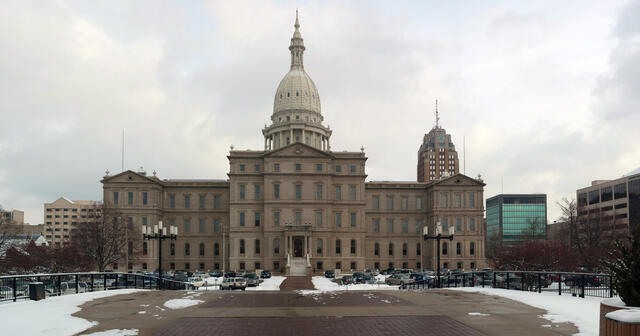

Gov. Gretchen Whitmer touted her economic accomplishments when she offered supply chain management company NorthGate $1 million in taxpayer money to add 374 jobs in 2021.
“These investments will create hundreds of promising jobs for Genesee County residents as we continue to grow Michigan’s economy and build strategic industries across the state,” the governor said in October 2021. "Today's business expansions are helping us stay laser-focused on creating good jobs, growing our economy, and continuing to lead in key industries like manufacturing and supply chain logistics.”
These investments did not create hundreds of promising jobs. The company had not lived up to its agreement as of 2022, and the state ended its deal with the company in 2023, according to state reports. The state made no payments on its $1 million award. That’s the good news. The bad news is that it’s unclear whether NorthGate added any jobs or simply moved them around the company’s different locations in the state or elsewhere. The state does not give adequate assessments of whether its subsidies create jobs or move them around at taxpayer costs.
The money offered to the company was not to sway managers from moving elsewhere. The program it came from has no requirement to use the subsidy to address competitive offers or to ensure that the company expands in Michigan rather than elsewhere. In other words, the company was likely to have announced that it was expanding in Michigan with or without extra cash from the state.
The program gives an excuse for elected officials to thump their chests about jobs, as Whitmer did. They do this regardless of whether companies need the money or actually create jobs.
Whitmer used the NorthGate announcement as an opportunity to promote herself and her pro-jobs position. Her fanciful claims got widely reported, but no reporter followed up to learn that the company never created the jobs the state announced. Lawmakers can use these examples to bolster support even without effecting Michigan’s economic trends. They are examples of political development more than economic development.
Political development can still cost the taxpayer, even though it did not in the NorthGate deal. Lawmakers have authorized $4.4 billion in business subsidies since the legislative session began in January 2023.
Handing out taxpayer money to companies regardless of whether they need it is costly to the state treasury. It requires public payments without economic benefits.
Given that this money could have been better used elsewhere, subsidies also create a drag on the economy as a whole.
Companies that got deals from the program that approved NorthGate’s award were no more likely to create jobs than other companies, a study from the Mackinac Center found. In other words, handing out deals costs the state without increasing jobs.
Permission to reprint this blog post in whole or in part is hereby granted, provided that the author (or authors) and the Mackinac Center for Public Policy are properly cited.
Get insightful commentary and the most reliable research on Michigan issues sent straight to your inbox.


The Mackinac Center for Public Policy is a nonprofit research and educational institute that advances the principles of free markets and limited government. Through our research and education programs, we challenge government overreach and advocate for a free-market approach to public policy that frees people to realize their potential and dreams.
Please consider contributing to our work to advance a freer and more prosperous state.

Donate | About | Blog | Pressroom | Publications | Careers | Site Map | Email Signup | Contact